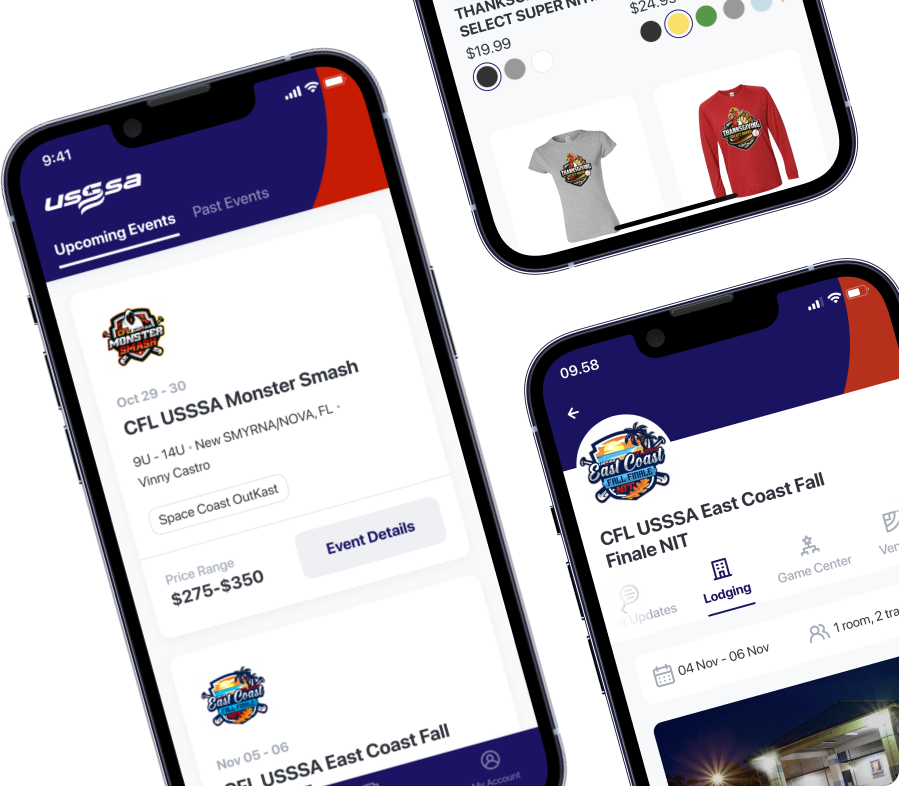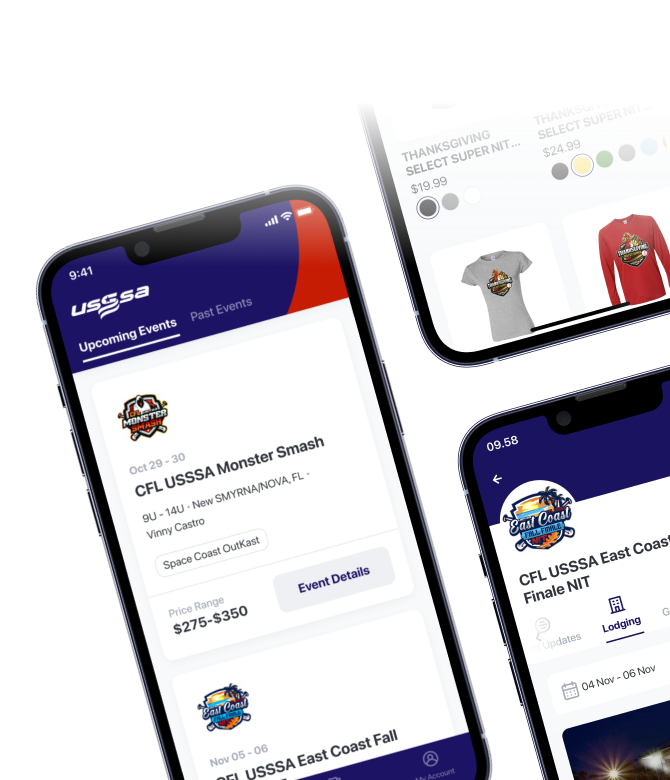Code of Conduct
I. CONDITIONS
- The Code of Conduct applies to all participants including players, coaches, managers, sponsors, and spectators associated with the adult softball program.
- The code applies to participant conduct before, during, and after all USSSA events.
- Participants will be held liable for damages caused by misusing park facilities and may be required to reimburse the city for any damages caused.
- It is the responsibility of each team manager to ensure that all participants and spectators know and adhere to the rules and regulations.
II. ENFORCEMENT
- The Washington USSSA Ethics Committee will review all stage 2 and higher Code of Conduct violations and will make a recommendation for disciplinary action to the Executive State Director based on the range of disciplinary action listed under the penalty section of the Code of Conduct rules.
- The Executive State Director has the authority to impose penalties as prescribed within the Code of Conduct regardless of the Ethics Committee recommendations.
- The Umpires Association and the USSSA State Office will collect all necessary documentation and are responsible for notifying the team manager in writing (email or registered letter) of any penalty imposed. It is then the team manager’s responsibility to inform the player(s) of the penalty.
- All communications regarding code of conduct enforcement will be done via e-mail or registered letter.
- Any Code of Conduct violation that is a stage 2 or higher violation and involves any misconduct against an umpire will result in an investigation and a possible suspension of those involved.
- Most decisions will be final with no possibility of appeal. In some instances, the person(s) involved may be given a period of time to appeal the penalty.
- That appeal must be in writing and delivered to the state office within 10 days of the date of the notice.
III. VIOLATIONS AND PENALTIES
A. STAGE 1: Misconduct includes but is not limited to:
- Unsportsmanlike conduct
- Unnecessary roughness
- Reckless physical conduct and/or action(s)
- Casual profanity
- Inappropriate gestures
Penalty: Ejection from game and suspension for the remainder of the game based on the below listed criteria:
- If the ejection occurs prior to the 5th inning, the participant may play the next game as long as the participant leaves the game without additional incident and does not commit any other code of conduct violations (see Post Ejection Conduct below).
- If the ejection occurs after the 4th inning the participant is suspended for the next game.
Post Ejection Conduct (participant action immediately following an ejection by an umpire):
- Misconduct includes but is not limited to:
- Continues to use profanity.
- Acts or carries on in a disruptive manner.
- Refuses to leave as requested by umpire or staff.
Penalty: Ejection from the tournament, AND moved to at least a Stage 2 violation and will be reviewed by the Player Representative Board
B. STAGE 2: Includes Stage 1 criteria but more severe.
Misconduct includes but is not limited to:
- Taunting
- Failure for a coach or manager (whoever represents the team for the game) to: attempt to de-escalate a
potentially volatile situation, attempt to control a participant that is violating the Code of Conduct. - Intimidating behavior and/or action
- Excessive profanity
- Perceived reckless behavior.
- Unnecessary roughness with the perceived intent to cause harm or injury
- Unruly, disruptive, unsportsmanlike, uncooperative behavior etc. immediately following an ejection by an umpire.
- Consumption of alcohol or use or possession of other drugs on City property before, during or after any scheduled game.
Penalty: Ejection from the tournament, AND a possible suspension for up to one year from the date of the incident, AND/OR probation for up to three years from the date of the incident.
C. STAGE 3: Includes Stage 2 violations but more severe.
Misconduct includes but is not limited to:
- Verbal threats such as “I know where you live”, “I better not see you out here again”, “or else” etc.
- Physical contact with anyone (includes incidental contact with umpire, opposing players, spectators, staff etc.)
- Any negative (verbal, physical) contact with an umpire prior to or after a game on or off the field
- Any negative contact with an umpire in the parking lot, at their vehicle or anywhere else on City property
- Throwing a ball or any other object in the general direction of anyone
- A player purposefully throwing a ball at a base runner while the base runner is attempting to stay out of the way of a fielders attempt to throw.
- Giving the distinct impression through gesture or verbally expressing the idea or perceived notion and intent to instigate a fight. This includes commonly known phrases such as “let’s take this to the parking lot” etc.
Penalty: Immediate ejection from all USSSA play for up to one year, with the possibility of an additional four years if the Executive State Director chooses to pursue that option.
D. STAGE 4: Includes Stage 3 violations but more severe.
Misconduct includes but is not limited to:
- Punching, striking or assaulting anyone.
- Purposefully throwing a ball or any other object and striking at anyone
Penalty: Immediate ejection from all USSSA play for up to one year with the probability that the Executive State Director will ask the National Organization for up to a lifetime of suspension from all USSSA participation.
TEAM MISCONDUCT:
A team will be found in violation of the Code of Conduct if the following occurs:
- A team instigates, promotes or participates in a bench clearing fight at any time before, during or after a game.
- The definition of a bench clearing brawl is defined as 2 or more players from the same team leaving the dugout or their positions on the field to instigate the above bulleted misconduct violations.
Penalty: Immediate ejection from the tournament, followed by a possible suspension of the entire team from participation in all tournaments play for up to one year from the date of the incident.
USE OF ONE OR MORE ILLEGAL PLAYERS IN TOURNAMENT PLAY:
It is the responsibility of every coach to know and understand the eligibility rules of the program that their team is participating in. If it is found that a player is, or was, participating in tournament play illegally, then the penalty could be anything from 30 days probation up to a years’ suspension. Each individual case will be dealt with on its own merits. Coaches, players and teams, can and will be held accountable. For USSSA Washington to be able to deal fairly with these situations, a protest should be filed at the tournament. Failure to report the incident to the TD will make it very difficult to hand out penalties.
USE OF ALTERED OR ILLEGAL BATS IN USSSA/GSL PLAY:
It is the responsibility of every athlete to know and understand the eligibility rules of the program that their team is participating in. If it is found that a player is, or was, using in league or tournament play an illegal bat, then the penalty will be an ejection from the game being played only. Each individual case will be dealt with on its own merits. As a repeat offender will be ejected and face further penalty from the Ethics Committee. Coaches, players and teams, can and will be held accountable. For USSSA Washington to be able to deal fairly with these situations, a protest should be filed at the tournament. Failure to report the incident to the TD will make it very difficult to hand out penalties.
It is the responsibility of every athlete to know and understand the eligibility rules of the program that their team is participating in. If it is found that a player is, or was, using in league or tournament play an altered bat, then the penalty will be an ejection from the league or tournament being played. Each individual case will be dealt with on its own merits. The ejected player may face further penalty from the Ethics Committee and our National Headquarters. Coaches, players and teams, can and will be held accountable. For USSSA Washington to be able to deal fairly with these situations, a protest should be filed at the tournament. Failure to report the incident to the TD will make it very difficult to hand out penalties.
ANY EJECTION HAPPENING AFTER THE COMPLETION OF THE 4TH INNING WILL RESULT IN THE EJECTED PLAYER BEING SUSPENDED FROM THEIR NEXT GAME.
Exception: An illegal bat ejection is only for the game being played. A repeat offender will have their information and incident reported to the Ethics Committee.
Concerns or questions should be sent directly to:
USSSA Washington State Office
[email protected]
Please include:
Strojan Kennison
Executive State Director
[email protected]






